Turmoil and transition: Iraq twenty years after the invasion

November 3, 2022 • 2:23 pm ET
Turmoil and transition: Iraq twenty years after the invasion
The Atlantic Council’s Iraq Initiative held a two-day conference on “Turmoil and transition: Iraq twenty years after the invasion.” The event took place from Tuesday, October 25, through Wednesday, October 26, 2022. The conference brought together leading experts and senior-level American and Iraqi policymakers to explore Iraq’s past two decades and analyze the key challenges and opportunities confronting future generations in Iraq.
The conference presented a series of panel discussions, fireside chats, and keynote speeches. These explored questions on Iraq’s security landscape, its regional role in mediation and foreign policy in general, Iraq’s hydrocarbons sector and efforts to manage climate change and the challenges it has faced in its democratic transition.
DAY ONE
Highlights from Keynote Speech – Jennifer Gavito, Deputy Assistant Secretary of State for Iraq, Iran, and Public Diplomacy, US Department of State
- Gavito discussed President Biden’s efforts to seek a more integrated Middle East by accelerating support to regional partners, including Iraq.
- She also discussed the fruitful US-Iraqi partnership and emphasized that Iraq has faced and overcome many challenges, but now faces new challenges, including unemployment and lack of electricity. She stressed that the onus is on the new government to enact policies that improve lives of citizens and decrease corruption.
- Gavito emphasized that Iraq’s youth are its most valuable resource, as an estimated 60 percent of the population is under the age of twenty-five.
Iraq’s Armed Forces, Security, and Counterterrorism
- Gen. Abdel-Wahab Al-Saadi, Head of Iraqi Counter Terrorism Service, Republic of Iraq stressed that Iraq’s security challenges are at the heart of all of Iraq’s problems, particularly since 2003, although he noted that the US has helped build the capabilities of the Iraqi Army. Gen. Al-Saadi said that the Army still needs significant improvements and is attempting to do so with the help of the Ministry of Interior and other governmental institutions.
- Gen. Michael D. Barbero, US Army Lieutenant General (Ret.), United States of America, emphasized the importance of continuing US aid and assistance to Iraq that is conditioned on solving corruption and the malign influence of Iran, as well as continuing US intelligence on the ground to fight counterterrorism in the country. Gen. Barbero stressed Iraq must restrict and remove corruption in security institutions in Kurdistan Regional Government.
Fireside Chat – Mohamed Ali Al-Hakim, Former Foreign Minister, Republic of Iraq
- Al-Hakim emphasized the importance of the Strategic Framework Agreement (FSA) between the US and Iraq, calling it the groundwork of Iraq and America’s bilateral relationship.
- He mentioned Iraq’s need to balance its relationships with both Iran and the United States.
- He recommended that Iraq bring in more private sector companies into the country, which will increase not only political dialogue with the US, but also develop the economy and security situation in Iraq.
- Al-Hakim also stressed the importance of increasing renewable energy similar to Egypt, citing Iraq’s abundance of sun for solar energy.
Iraq in the Region
- Abbas Kadhim, Director, Iraq Initiative, Atlantic Council discussed the legacy of former Iraqi Prime Minister Al-Kadhimi. Kadhim also stressed that internal weakness opens the door for foreign influence and meddling, and recommended that Iraq heal internally, focusing on healing civic divides, particularly on ethno-sectarian lines.
- Manal Radwan, Counsellor, Office of the Minister of Foreign Affairs, Kingdom of Saudi Arabia mentioned that Iraq has regained trust in the region, particularly in Saudi Arabia, although Iranian proxies in Iraq are still a major issue that threatens regional and international peace and security. Radwan also discussed the need to strengthen Iraq’s institutions and said that Saudi Arabia should work with Iraqis and other international partners to strengthen Iraq.
- Ayd?n Selcen, Former Consul General of Turkey in Erbil, Republic of Turkey mentioned the close relationship between Turkey and Iraq, particularly in terms of trade, and commented that Turkey is the way for all Iraqis to bridge toward the West.
- Sanam Vakil, Deputy Director and Senior Research Fellow, Middle East and North Africa Programme, Chatham House stated that Iran had a thirteen year head start on creating relationships with Iraq, and for that reason, Iran is the most important foreign player in Iraq today. Vakil emphasized that this relationship has heavily damaged Iraq’s internal stability, as Iran has used Iraq to assert its broader regional ambitions.
DAY TWO
Highlights from Welcoming Remarks – Olin Wethington, Board Director, Nonresident Senior Fellow, Asia Security Initiative, Atlantic Council; Chairman, Wethington International LLC
- Wethington discussed Iraq’s unstable status and evolution, including past failures with possible solutions for various challenges such as employing constitutional reform.
- He also emphasized that despite Iraq being an oil-dependent country, structural challenges remain present, adding entrepreneurship is still elusive, and opportunities in the private sector continue to be limited.
- He suggested because of the widespread protests there will be public grievance and impatience, particularly among the youth and highlighted the country’s political fragility due to the inability to form a new government over a year since the last election.
- He highlighted that the young generation in Iraq will shape the future of the country, stating “shaping the future is our primary collective task, hence the priority of this conference.”
- Wethington stated, “the United States remains committed to a strategic partnership with the Iraqi people and their government and seeks to support a stable, prosperous, democratic, and unified Iraq.”
Energy, Economy, and the Environment
- Majid Jafar, Chief Executive Officer, Crescent Petroleum, argued that the oil issue didn’t occur after the Ukraine war, or the pandemic, however, there has been a “structural chronic deficit in oil.” He added that because of the shortage of gas supply, Iraq must play a key role in supplying global markets after addressing its own needs.
- Luay Al-Khateeb, Former Minister of Electricity, Republic of Iraq, examined the electrical interconnectivity, explaining that even though it provides a stable national grid and creates a competitive utility market within the MENA region, it will not resolve the electricity crisis in Iraq.
- Sara Vakhshouri, Founder, SVB Energy International and SVB Green Access, said Iraq could have energy independence and decarbonization, stressing the importance of extracting its own natural gas and expanding oil production. She discussed that lack of investments in fossil fuels is a major reason for high energy prices and shortage in energy supplies. Further, she emphasized that energy production and security issues remain present due to problems with investment regulation which prevents Iraq from advancing domestically and globally.
Highlights from Keynote Speech – H.E. Hassan Nadhem, Minister of Culture, Republic of Iraq
- His excellency highlighted Iraq’s cultural, educational, and technology, focusing on discussing the non-security centered issues.
- His excellency mentioned that Iraq is determined to rebuild and renovate despite the existing challenges.
- The minister stressed that Iraq has become a hub for agreement whereas in the past, it was for conflicts. Adding there has been change in the international and diplomatic relations but to see more effective transformation, this progress needs to be constant.
- His excellency also emphasized Iraq’s clear improved relationship with United States regardless of the past and current challenges.
Iraq’s Democratic Experience
- Feisal Al-Istrabadi, Founding Director, Center for the Study of the Middle East; McRobbie Professor in Global Strategic Studies, Indiana University, stressed the most difficult but important task for the new government in Iraq is to engender a sense of confidence in the Iraqi people and government. He also emphasized that corruption in Iraq would continue, and there will not be a significant reform.
- Laith Kubba, Independent Advisor on Iraq, mentioned the previous protest movements and the impact they had on the Iraqi government. He emphasized the dysfunctional system failing to reform itself internally in Iraq. However, young individuals there are forcing an alliteration to this system.
- Sarkawt Shamsuddin, Former Member of Iraqi Parliament, Republic of Iraq, emphasized that the political system in Iraq has a number of independent but inexperienced individual’s, which create inaccuracy in the process of decision-making in parliament. He added that the parliament is still truly controlled by the big political parties or “main players.” Highlighting the previous prime minister’s failure in conducting serious reforms including investments in securing the border, and his success in continuing mediation efforts with Gulf countries and Iran.
- Shamiran Mako, Assistant Professor of International Relations, Pardee School of Global Studies, Boston University, emphasized finding ways for the government to revive confidence by providing necessary institutional reforms and engaging in more conciliatory politics, even when there are many strategic alliances. Professor Mako also stressed that Iraq was not a functioning democracy, it was always an elite game in terms of how government operates.
Nour Alhajjeh and Madeline Hart are Young Global Professionals with the Middle East Programs at the Atlantic Council.
Recap the 2022 event
Further reading
Thu, Nov 3, 2022
Optimizing and aligning the US-Iraq relationship
Report By C. Anthony Pfaff
This report considers US-Iraq relations’ need for an approach that relies less on directly confronting corrupt and malign actors and more on creating better alternatives so that individuals and groups do not choose to engage in corrupt and malign activities in the first place.
Mon, Sep 26, 2022
Amman-Baghdad-Cairo (ABC) Agreement: A new path for economic integration
Report By
Since 2019, Egypt, Iraq, and Jordan have held multiple summit meetings to discuss trilateral agreements to formalize and deepen economic integration. By cooperating among themselves, the three countries can represent a united political and economic front. This report explores the potential benefits and pitfalls to avoid from the perspective of each country: Egypt, Jordan, Iraq.
Image: A demonstrator waves an Iraqi flag as another gestures during an anti-government protest in Baghdad, Iraq May 25, 2021. REUTERS/Thaier Al-Sudani

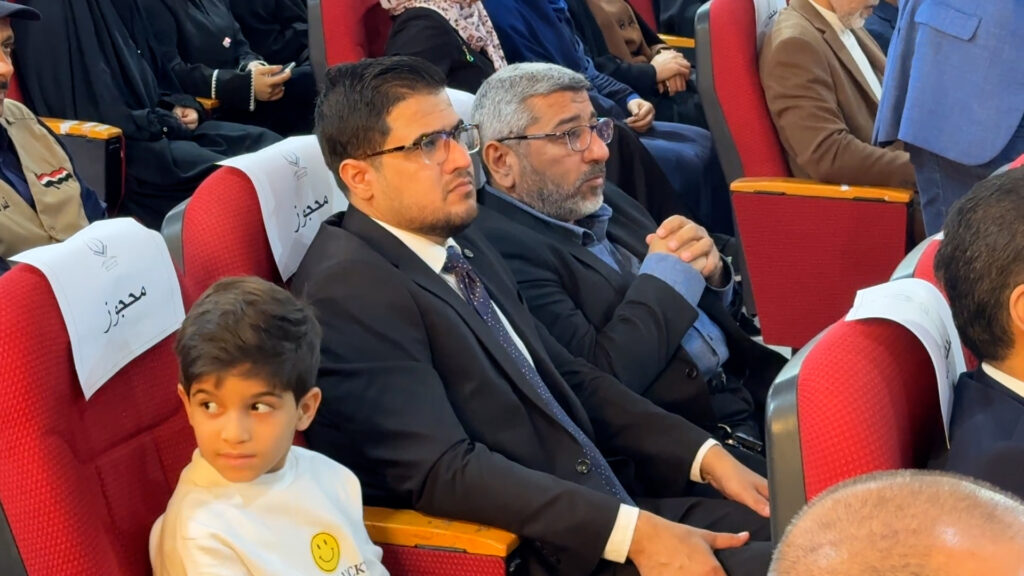
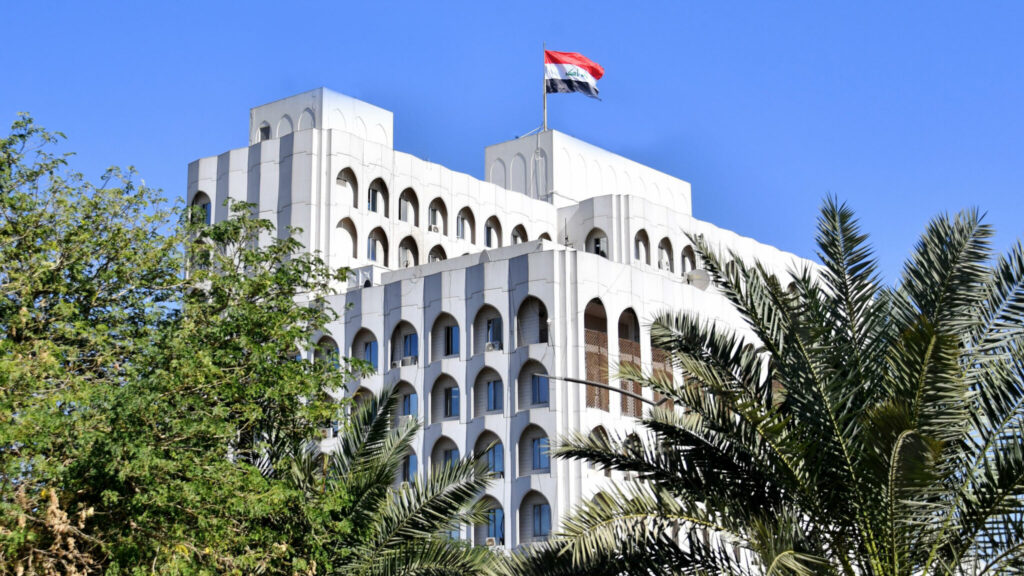
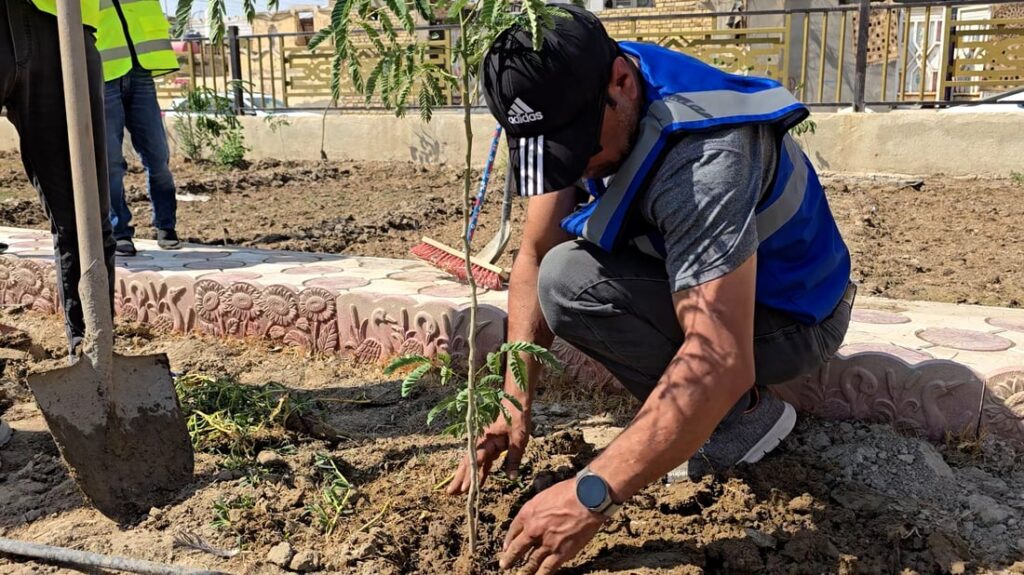
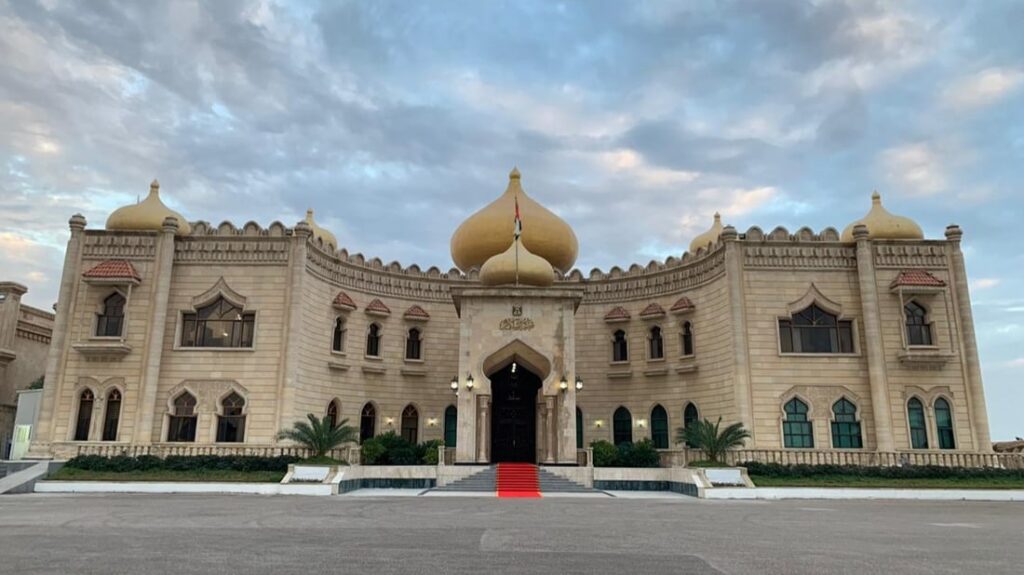
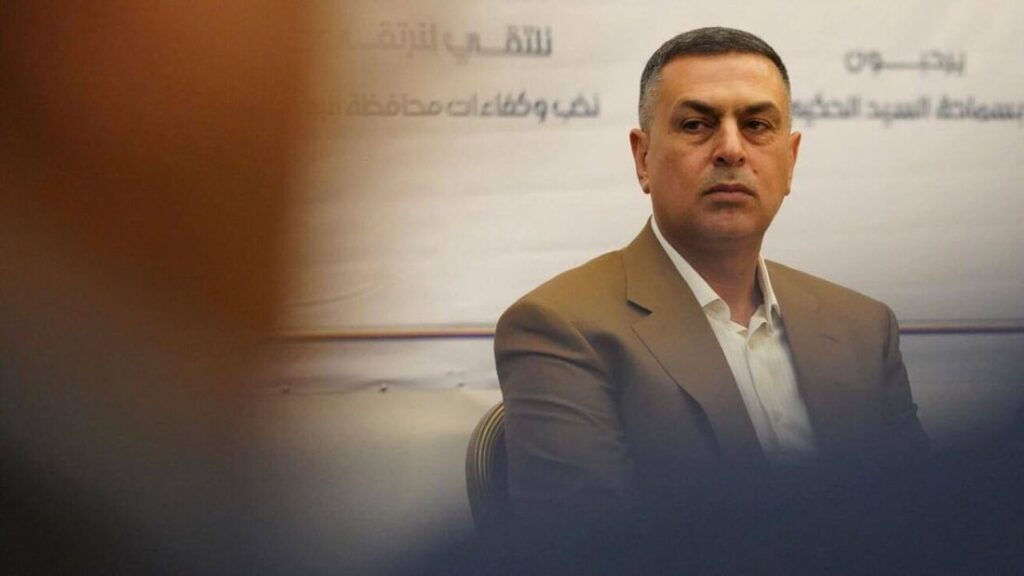
On Twitter? Follow @AtlanticCouncil and @ACMideast